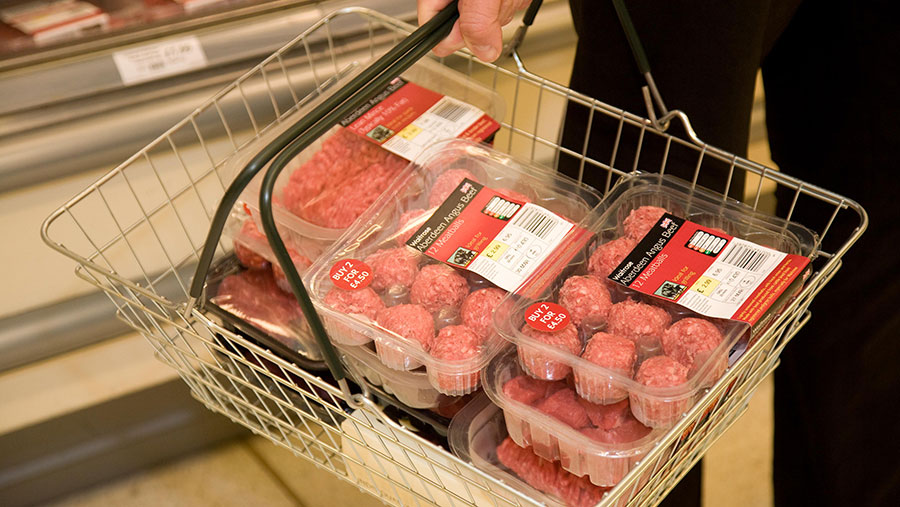Supermarkets strengthen their hold over food supply chain
 © Tim Scrivener
© Tim Scrivener Supermarket dominance of the food supply chain has increased as a result of the coronavirus pandemic and farmers should expect downward pressure on prices to continue.
Addressing a Worshipful Company of Farmers question time session on Thursday (28 January), Food and Drink Federation director general Ian Wright pointed to major changes in consumption patterns over the course of the pandemic.
See also: Adjudicator calls for farmer views on supermarket practices
“One of the unexpected consequences of the Covid crisis is that supermarket power in the market has elevated,” he said.
“When we started the crisis, food consumption was 70% through retail and 30% through ‘out of home’. Now it is 95% and 5%.”
Mr Wright explained that much of that 95% has been delivered through convenience stores, and they had done very well.
“But do not be mistaken, the supermarkets have also done extremely well – and it is in their DNA that price is a critical determinant.”
Mr Wright believed that, in time, consumers could be “educated” to value things like provenance, climate change mitigation and the ethical nature of the production.
But the fact remained that households now spent just 8% of their income on food, compared with 30% in the 1970s and 50% in the 1950s.
“It would be ‘Canute-like’ to pretend that price was not a critical factor – and that’s encouraged by the extraordinary nature of cut-throat competition between our supermarkets,” he said.
High standards
NFU president Minette Batters said it seemed to be that British shoppers “want it all”. But the British farmer has pretty much “done it all”, offering high animal welfare and environmental standards, and the safest food in the world.
“The continual investment in our short, safe supply chains has really paid off,” she said.
But there were real questions about long-term sustainability. Greater efficiencies at the farming and growing end had allowed retail prices for things like milk and strawberries to remain more or less static over the past 20 years.
Farmers needed to know that, as they went further, for example with trying to deliver “net zero” carbon emissions, they would get a return at the farmgate.
“Farmers have got to be able to get more out of the marketplace, and climate change (mitigation) really needs to show that,” said Mrs Batters.
Pain
Mr Wright agreed climate change mitigation was one area where there would have to be some pain for shoppers.
“But the positive is that you have a generation of managers in food and drink businesses for whom this is something they assume must be done. There is a presumptive view that this is a ‘must have’ business objective.”
